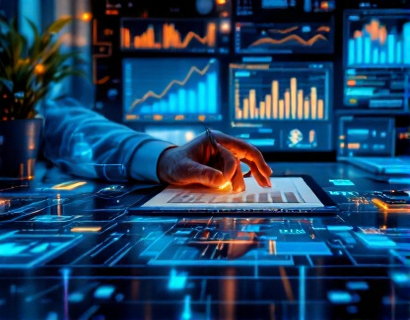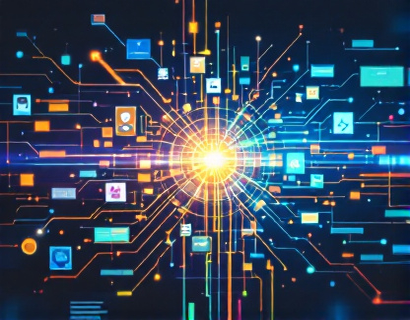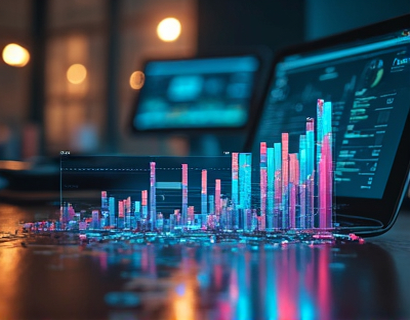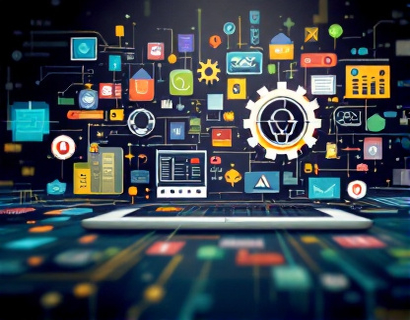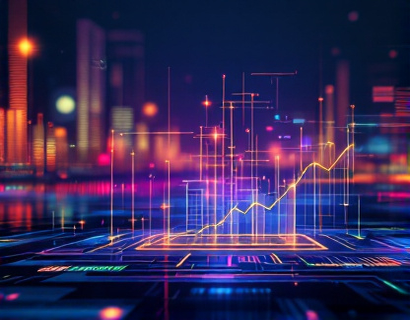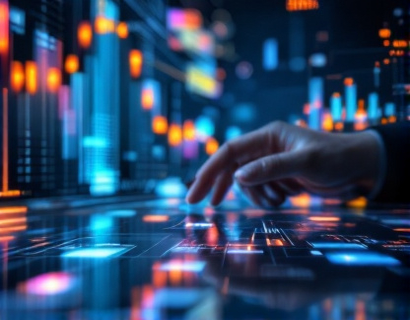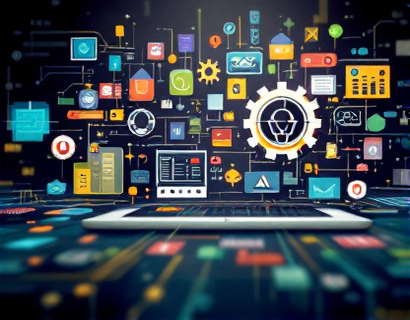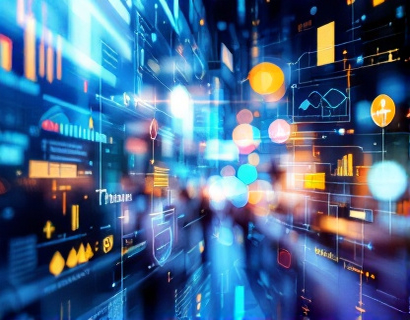AI and Crypto: Transforming Financial Landscapes with Innovative Tech Solutions
The intersection of artificial intelligence (AI) and cryptocurrency is revolutionizing the financial industry, creating a new paradigm in technology and finance. This synergy is giving rise to innovative digital solutions that not only enhance user experiences but also set new industry standards. As crypto enthusiasts and tech-savvy innovators continue to push the boundaries of what is possible, the integration of AI into cryptocurrency is becoming increasingly pivotal. This article explores the transformative power of this merger, delving into how these technologies are reshaping the financial landscape.
The traditional financial systems have long been characterized by their complexity, opacity, and slow transaction times. The advent of blockchain technology, the backbone of cryptocurrencies, promised a more transparent, secure, and efficient alternative. However, the true potential of blockchain was only fully realized when combined with AI. AI's ability to process vast amounts of data, learn from patterns, and make predictions has found a perfect application in the realm of cryptocurrency.
One of the primary ways AI is transforming the crypto space is through enhanced security measures. Cryptocurrencies, while secure by design, are not immune to threats such as hacking and fraud. AI algorithms can analyze transaction patterns in real-time, identifying and flagging suspicious activities with high accuracy. This proactive approach to security helps in mitigating risks and building trust among users. For instance, AI-powered systems can detect anomalies in blockchain transactions, preventing potential fraud before it occurs.
Another significant area where AI and crypto intersect is in market analysis and trading. Traditional trading relies heavily on human intuition and analysis, which can be limited by cognitive biases and the sheer volume of data. AI, on the other hand, can process and analyze vast datasets at speeds unattainable by humans. Machine learning models can identify trends, predict market movements, and execute trades with precision and speed. This not only improves the efficiency of trading but also opens up new opportunities for algorithmic trading and automated investment strategies.
The integration of AI in crypto also enhances the user experience through personalized services. By leveraging user data, AI can provide tailored recommendations for investments, wallet management, and security measures. For example, AI-driven platforms can analyze a user's transaction history and risk tolerance to suggest optimal investment portfolios. This level of personalization is a significant step forward, making cryptocurrency more accessible and user-friendly for a broader audience.
Smart contracts, a cornerstone of blockchain technology, are another area where AI is making substantial contributions. Smart contracts are self-executing contracts with the terms directly written into code. AI can optimize these contracts by ensuring they are not only secure but also efficient and adaptable. AI algorithms can analyze complex scenarios and suggest improvements to smart contract code, reducing the risk of errors and enhancing functionality. This synergy between AI and smart contracts is paving the way for more sophisticated and reliable decentralized applications (dApps).
The financial inclusion aspect is another critical benefit of the AI-crypto fusion. Traditional banking systems often exclude large segments of the population due to stringent requirements and high costs. Cryptocurrency, combined with AI, can bridge this gap by providing financial services to the unbanked and underbanked. AI-powered identity verification systems can ensure secure and efficient onboarding processes, while AI-driven financial advisory services can guide users in managing their finances effectively. This democratization of financial services is a transformative step towards a more inclusive global economy.
Moreover, AI is enhancing the scalability and sustainability of blockchain networks. As the number of transactions increases, blockchain networks face challenges related to speed and energy consumption. AI can optimize blockchain operations by predicting network loads, managing resource allocation, and improving consensus mechanisms. For instance, AI can help in developing more energy-efficient consensus algorithms, reducing the environmental impact of blockchain technology. This is crucial for the long-term viability and adoption of cryptocurrencies.
The role of AI in cryptography itself is also noteworthy. Traditional cryptographic methods rely on mathematical problems that are difficult to solve. AI can augment these methods by generating more complex and secure cryptographic keys. Machine learning models can analyze patterns and create keys that are virtually unbreakable, enhancing the overall security of cryptocurrency transactions. This advancement is particularly important as cyber threats become more sophisticated.
Another innovative application of AI in the crypto space is in the realm of decentralized finance (DeFi). DeFi platforms aim to create financial systems that are open, transparent, and accessible without intermediaries. AI can enhance DeFi by providing predictive analytics, risk assessment, and automated trading tools. These tools can help users make informed decisions and manage their assets more effectively within the DeFi ecosystem. AI-driven oracles, which connect blockchain data to smart contracts, ensure that the data used in these applications is accurate and up-to-date.
The impact of AI on crypto extends beyond technology to the broader economic and social dimensions. AI can help in economic forecasting by analyzing market trends, policy impacts, and global events. This can provide valuable insights for policymakers, investors, and businesses, enabling them to make more informed decisions. Additionally, AI can facilitate cross-border transactions by streamlining processes and reducing costs, fostering international trade and economic growth.
However, the integration of AI and crypto is not without challenges. Regulatory concerns are a significant hurdle, as governments worldwide grapple with how to oversee these innovative technologies. Ensuring compliance with existing financial regulations while fostering innovation is a delicate balance. Transparency, accountability, and ethical considerations are paramount in this regard. The crypto community and AI developers must work closely with regulators to establish frameworks that protect users and promote responsible use.
Another challenge is the technical complexity involved in integrating AI with blockchain technology. Developing robust and scalable solutions requires expertise in both domains. Collaboration between AI researchers, blockchain developers, and industry experts is essential to overcome these technical barriers. Open-source projects and community-driven initiatives can play a crucial role in advancing this integration, fostering innovation and sharing knowledge.
Looking ahead, the future of AI and crypto is promising. As technology continues to evolve, we can expect even more sophisticated applications and integrations. The development of quantum computing, for instance, could revolutionize both AI and blockchain, leading to unprecedented levels of computational power and security. The potential for AI to enhance quantum-resistant cryptography is an exciting area of research that could secure the future of digital currencies.
In conclusion, the merging of AI and cryptocurrency is transforming the financial landscape in profound ways. From enhancing security and market analysis to enabling financial inclusion and improving blockchain scalability, the synergy between these technologies is setting new industry standards. As the crypto and AI communities continue to innovate, the possibilities for a more efficient, secure, and inclusive financial future are vast. Embracing this transformation is key to staying ahead in the rapidly evolving world of finance and technology.








